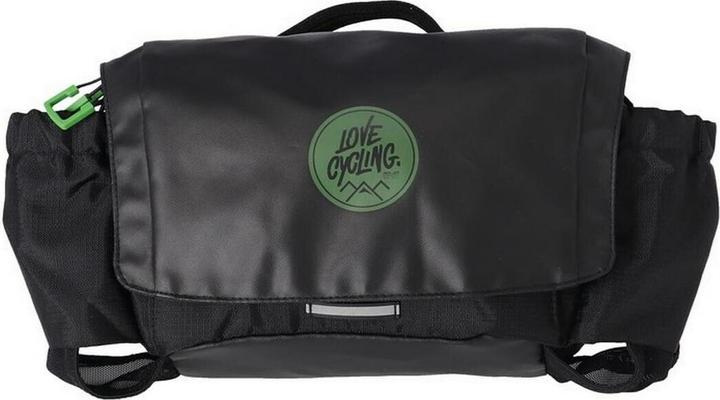
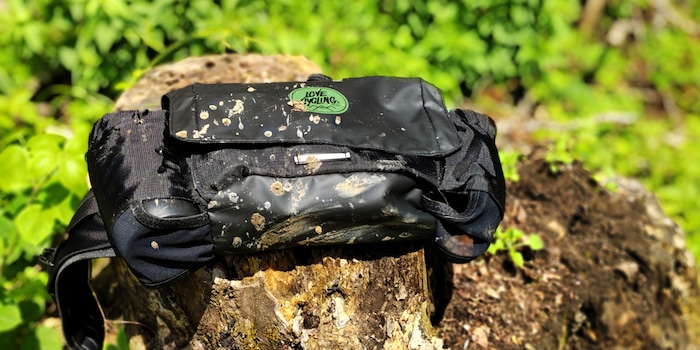
Why an XLC Hipbag is better than a backpack
The XLC Hipbag offers space for your essentials and more. And allows plenty of freedom when cycling. This is hip, but makes your backpack almost superfluous.
The biggest disadvantage of a rucksack? A sweaty back. Whether it’s Evoc or Vaude, Ortovox or Salewa, cycling, hiking or any kind of physical exertion will make you sweaty in no time at all. Regardless of the ventilation system the manufacturer advertises, the result is always the same: wetness.
So you can probably guess what the biggest advantage of a hip bag is: air can circulate freely around the back. Another plus is the freedom of movement.
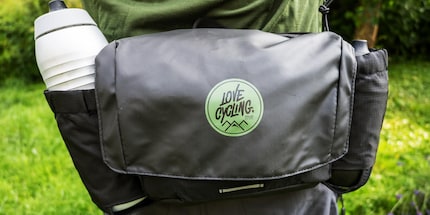
Source: Daniela Rohr
The XLC Hipbag
Many bikes today offer storage space in the frame for spare parts and tools. But where to put all the other equipment that becomes increasingly important the longer your tour is? In addition to rucksacks and bike bags, hip bags come into their own, especially in summer. Like the Hipbag from Dutch manufacturer XLC, who provided me with the product for the test.
You can find all other hip bags in our range here.
Product features:
- Dimensions: 27 × 21 × 8 cm
- Volume: approx. 3.6 litres
- Weight: 455 grammes
- Water-repellent
- A large, washable and waterproof flap over the main compartments
- Clip for the hydration bladder tube on the hip belt
- Ideal for tools, phone, snacks and a small rain jacket
- Compatible with the XLC BA-X30 hydration bladder

Source: Daniela Rohr
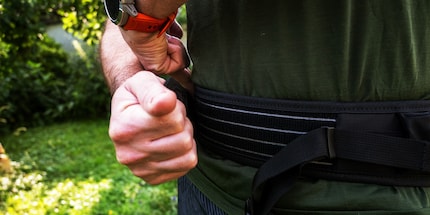
Source: Daniela Rohr
Many advantages, few disadvantages
In addition to air circulation at the back and freedom of movement, the Hipbag has more to offer. I don’t have to remove the hip bag to access the contents, which is often the case with a rucksack. I loosen the strap and turn the bag to my front. This gives me access to a mini pump, cell phone, tools, snacks, etc. Even a lightweight rain jacket with a small pack size finds its place in the "Hipbag". Interesting.
For high temperatures and one-day tours, the Hipbag from XLC is a real alternative to a rucksack. As your body’s centre of gravity is lower with a hip bag, your cornering position should also improve, in turn increasing safety. Nevertheless, if you have a fall, a rucksack with integrated protection has a clear advantage. That’s why I combine the hipbag with a back protector from Evoc.
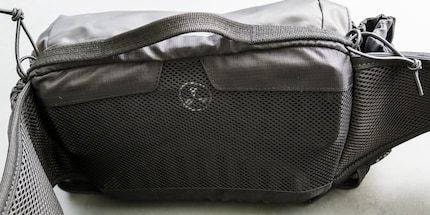
Source: Patrick Bardelli
In a nutshell
XLC Hipbag: more pros than cons
The advantages of belt bags or hip bags are obvious: more movement, more air on your back and quicker access. On longer trips with lots of equipment and during the cold season, when additional clothing may be needed, you still can’t get to your rucksack or bike bags.
What the hip bag lacks in comparison to the backpack is an integrated back protector that can protect against serious injuries in the event of a fall.
Pro
- air circulation around the back
- freedom of movement
- easy access to your belongings
Contra
- no back protection
- not suitable for long trips

From radio journalist to product tester and storyteller, jogger to gravel bike novice and fitness enthusiast with barbells and dumbbells. I'm excited to see where the journey'll take me next.


